Five of my favourite travel books: inspiring, astonishing and entertainingly informative
1
Unique. I've never read anything quite as singular in a series of connected real-life anecdotes. Rory MacLean must be one of the most underrated writers of nonfiction in the UK. A masterpiece of dark comedy, this rolling tale also gives the reader deep insights into the European continent, taken at its widest cultural identity. As a study in dialogue alone it's a gem. There is something of the historical document about this book too. Written during the fall of Communism, it reflects so much of the messy daily life and suffocating bureaucracy which surely ruled at the time.
2
The parts I love most in Biografi are those that tell the story of Petar Shapallo, a dentist forced to be a body double for the long-time Communist leader and dictator of Albania, Enver Hoxha. The narrative is propelled by the author's search for the still living Shapallo and the bizarre details of his life/job makes Llyod Jones' work worth reading alone. Seemingly, some of this was fictionalised and the Afterward section suggests as much. But to me, it all rang true, could have been real. All of it.
3
My own young imagination, before I could even read, had been fired by this book. With its superbly memorable illustrations by Garth Williams. I would always ask my mother to read me this story and one scene in particular is imprinted on my memory even still. I’m sure that it fed my unconscious with a deep desire to travel. Brave Scuppers is asleep in a warm bunk bed in his cosy, wood-paneled ship’s cabin. The ship is tossing because I can see that the light is swinging from the roof and outside through the round porthole window the sea is choppy. Under his bed are his new shoes that he picked out from a shop, pictured on the previous page. Scuppers rejected a different pair as being ‘too fancy’ because they were curly at the toe ends. This shop (where he also bought a ‘bushel’ of oranges) had palm trees outside and a woman in a veil walking by, seemingly in a hurry. I’d never seen either of those things before and didn’t know the word ‘exotic’ then but that’s what I was thinking in my forming child’s outlook. When I got to Morocco twenty five years later and saw the same curly shoes that Scuppers had passed over.. Travel has a way of also emboldening us because we are out of the realm of home’s familiar touches.
4
While her interests and focus were not traditionally travel themes, the geographic variety and range of experience and pure observation make this book a new classic of nonfiction. Ranging across Scotland, Cyprus, Estonia, France, Ukraine and the worst polluted parts of the USA, Flyn chronicles some of our species' most extreme errors. The text surges with poignant adjectives and metaphors. We are left in no doubt that these explorations ask sharp questions about how much human wrecking of the environment can be reversed. If you enjoy barren landscapes, deserted towns and the no man's lands that are increasingly common in a stressed planet then Island's of Abandonment won't leave you feeling disappointed.
5
Thoroughly deserving the accolade of Winner of The Thomas Cook Travel Book Award in 2003, Grant's near-epic starts at home in an east London unemployment office and ends with him turning his back on the desert and strolling to a house in Arizona where domesticity awaits. This book is pleasingly unusual because it shows us who else you can find on The Road. It also carries an understanding and appreciation of Native Americans that is rare. Place and time combine in sections where history and movement are equally hard to separate. The title is something of a misnomer, to me. The characters in the pages are exceptionally physical, though admittedly not always easy to recognisable as human. The author is certainly no mystery either. His self-revelations make the book so much more than mere bus rides around a flat landscape.
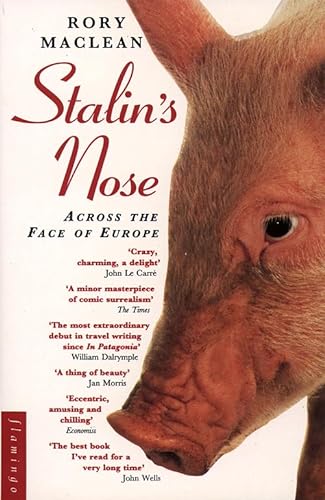
1
Unique. I've never read anything quite as singular in a series of connected real-life anecdotes. Rory MacLean must be one of the most underrated writers of nonfiction in the UK. A masterpiece of dark comedy, this rolling tale also gives the reader deep insights into the European continent, taken at its widest cultural identity. As a study in dialogue alone it's a gem. There is something of the historical document about this book too. Written during the fall of Communism, it reflects so much of the messy daily life and suffocating bureaucracy which surely ruled at the time.
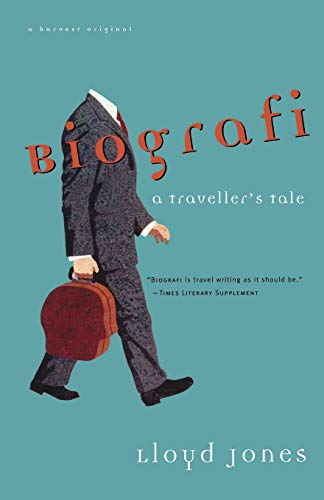
2
The parts I love most in Biografi are those that tell the story of Petar Shapallo, a dentist forced to be a body double for the long-time Communist leader and dictator of Albania, Enver Hoxha. The narrative is propelled by the author's search for the still living Shapallo and the bizarre details of his life/job makes Llyod Jones' work worth reading alone. Seemingly, some of this was fictionalised and the Afterward section suggests as much. But to me, it all rang true, could have been real. All of it.
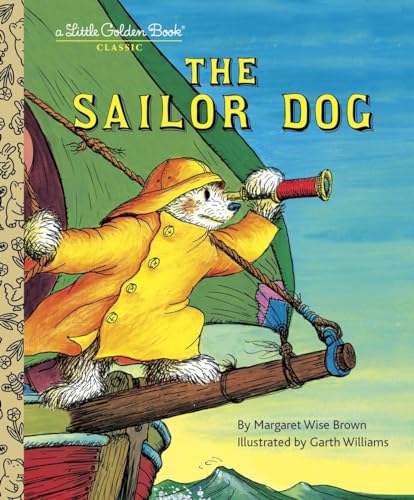
3
My own young imagination, before I could even read, had been fired by this book. With its superbly memorable illustrations by Garth Williams. I would always ask my mother to read me this story and one scene in particular is imprinted on my memory even still. I’m sure that it fed my unconscious with a deep desire to travel. Brave Scuppers is asleep in a warm bunk bed in his cosy, wood-paneled ship’s cabin. The ship is tossing because I can see that the light is swinging from the roof and outside through the round porthole window the sea is choppy. Under his bed are his new shoes that he picked out from a shop, pictured on the previous page. Scuppers rejected a different pair as being ‘too fancy’ because they were curly at the toe ends. This shop (where he also bought a ‘bushel’ of oranges) had palm trees outside and a woman in a veil walking by, seemingly in a hurry. I’d never seen either of those things before and didn’t know the word ‘exotic’ then but that’s what I was thinking in my forming child’s outlook. When I got to Morocco twenty five years later and saw the same curly shoes that Scuppers had passed over.. Travel has a way of also emboldening us because we are out of the realm of home’s familiar touches.
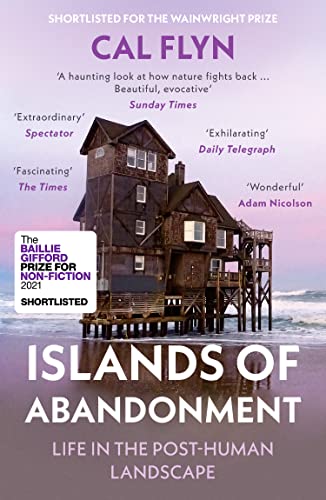
4
While her interests and focus were not traditionally travel themes, the geographic variety and range of experience and pure observation make this book a new classic of nonfiction. Ranging across Scotland, Cyprus, Estonia, France, Ukraine and the worst polluted parts of the USA, Flyn chronicles some of our species' most extreme errors. The text surges with poignant adjectives and metaphors. We are left in no doubt that these explorations ask sharp questions about how much human wrecking of the environment can be reversed. If you enjoy barren landscapes, deserted towns and the no man's lands that are increasingly common in a stressed planet then Island's of Abandonment won't leave you feeling disappointed.
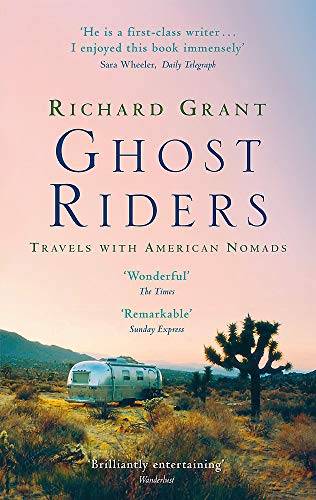
5
Thoroughly deserving the accolade of Winner of The Thomas Cook Travel Book Award in 2003, Grant's near-epic starts at home in an east London unemployment office and ends with him turning his back on the desert and strolling to a house in Arizona where domesticity awaits. This book is pleasingly unusual because it shows us who else you can find on The Road. It also carries an understanding and appreciation of Native Americans that is rare. Place and time combine in sections where history and movement are equally hard to separate. The title is something of a misnomer, to me. The characters in the pages are exceptionally physical, though admittedly not always easy to recognisable as human. The author is certainly no mystery either. His self-revelations make the book so much more than mere bus rides around a flat landscape.
© Five Books 2026